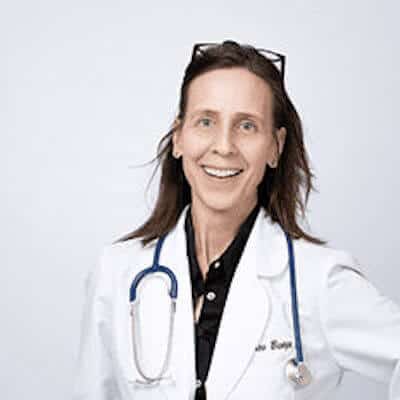Understanding Prescription Drug Addiction
Prescription drug addiction is the third leading cause of substance use disorders in the United States, according to survey data from the Substance Abuse and Mental Health Services Administration. Over 7 million people in the United States met the criteria for a prescription drug use disorder in a recent year.
Yet prescription drug abuse can be overcome. Prescription drug addiction treatment is a highly effective option for helping people break free from prescription drug abuse, learn to maintain their abstinence, and build healthier, happier lives for themselves in recovery.
Commonly Misused Prescription Drugs
Dozens of prescription drugs have a high potential for abuse. This includes prescription painkillers, medications for sleep disorders, benzodiazepines designed to treat anxiety, and central nervous system stimulants meant to help people with attention deficit/hyperactivity disorder.
Some of the most commonly abused prescription medications include:
Adderall (amphetamine/dextroamphetamine salts)
Ritalin (methylphenidate)
OxyContin (oxycodone)
Vicodin (hydrocodone)
Morphine
Codeine
Xanax (alprazolam)
Valium (diazepam)
Klonopin (clonazepam)
Restoril (temazepam)
Ambien (zolpidem)
OxyContin, Vicodin, morphine, and codeine are all opioid painkillers with similar effects to illicit opioids, such as heroin.
Adderall and Ritalin are stimulant drugs and are misused for the same reasons people may use methamphetamine or cocaine.
Xanax, Valium, Klonopin, and Restoril all belong to a class of drugs known as benzodiazepines and produce effects similar to those produced by alcohol.

Signs of Prescription Drug Abuse
The signs and symptoms of prescription drug misuse can help people understand when their use of prescription medications has become a problem.
Many people struggle to accept that they live with a substance use disorder when using prescription drugs. After all, these medications are typically prescribed by physicians who have your best interests at heart.
But using prescription drugs, even if only taken as prescribed, does not make you exempt from the risk of addiction. Some of the most common signs of prescription drug addiction include:
Taking more prescription drugs than prescribed
Craving your prescription medications
Experiencing prescription drug withdrawal symptoms if you suddenly stop taking your medication
Abusing prescription drugs even though it leads to worsening physical and mental health consequences
Loss of interest in activities or hobbies outside of prescription drug use
Growing tolerance for your prescription medications, meaning you need to take more to achieve the desired effect
Multiple failed attempts to quit or cut down on your prescription medication on your own
Continued prescription drug abuse despite consequences at work, home, or school
Other signs that people might abuse their prescription medications include frequently calling their doctor for refills, experiencing significant stress if they cannot get their medications on time, or combining their medications with other drugs, such as alcohol or illicit substances.
How Prescription Drug Addiction Treatment Can Help
When a person has developed a prescription drug use disorder, they may be unable to stop their substance use on their own. This frequently results in them seeking out illicit drugs if they cannot get enough medications to support their habit through their doctors.
But there are evidence-based treatment methods for helping people break free from misusing prescription medications, which you can start today by reaching out to Malibu Detox.
Prescription Drug Detox
Prescription drug detox is the first step in achieving recovery. Depending on the specific medications you’ve been taking, prescription drug withdrawal symptoms can be incredibly uncomfortable and even dangerous.
Nausea, insomnia, and anxiety are common prescription drug withdrawal symptoms. Some medications can have drug withdrawal effects like delirium, hallucinations, and seizures. Without appropriate medical intervention, these seizures can result in death.
At a medically assisted detox program, people struggling with prescription drug addiction can receive targeted and effective treatments that vastly reduce their drug withdrawal symptoms.
Clients at our prescription drug detox receive around-the-clock care from specially trained medical professionals who work tirelessly to ensure your comfort and safety.
Medical detox can not only make you more comfortable but can reduce the danger associated with detoxing from prescription drugs. This makes it a necessary precaution for anyone who is struggling to break free from their substance use disorder.
Stage 1: Assessment
The first step in detox is a careful diagnosis and assessment process. This helps our detox team determine the severity of your substance use disorder and develop a customized treatment plan catered to your needs. It can also help identify any co-occurring medical or mental health conditions that may impact your treatment process.
Stage 2: Stabilization
The second stage of prescription drug detox is known as stabilization. This stage takes up the bulk of your treatment stay and involves receiving both medical and mental health treatment to minimize your withdrawal symptoms.
At the end of the stabilization phase, clients have fully cleared any addictive chemicals from their systems and are prepared to receive further addiction treatment.
Stage 3: Transition
The final step is transitioning from detox to a residential treatment facility, where people can take part in behavioral therapies that can help them sustain their recovery for a lifetime. Our detox team can help you make this transition as seamlessly and effortlessly as possible.
Residential Treatment
Detox is typically followed by a residential treatment program, which offers evidence-based psychotherapies that can help people learn the skills they need to maintain their sobriety. These therapies may include:
Motivational interviewing
Medication-assisted treatment
Relapse prevention programs
Group therapy
Together, these treatments can help people to learn healthy coping mechanisms, resist future relapse, and build strong, healthy lives in recovery.
Outpatient Prescription Drug Addiction Treatment
After residential treatment, clients can elect to continue receiving clinical support by joining outpatient prescription drug addiction treatment. Outpatient programs offer flexibility and convenience for those who have completed the intensive phase of treatment. These programs typically include individual therapy, group counseling, and medication management to help individuals maintain their recovery.
Outpatient prescription drug addiction treatment allows clients to receive ongoing support while still being able to participate in daily activities such as work or school. This type of program can be particularly beneficial for those who have strong support systems at home and are motivated to continue their recovery journey.
Aftercare and Sober Living
After completing inpatient and outpatient prescription drug addiction treatment, clients receive a comprehensive aftercare plan. This plan includes ongoing therapy, support groups, and guidance for maintaining a sober lifestyle.
The aftercare plan at Malibu Detox is designed to provide clients with the necessary tools and resources to continue their journey toward recovery. Our team of experienced therapists will work closely with each client to create an individualized aftercare plan that meets their specific needs and goals.
Both during and after treatment, our team provides guidance on maintaining a sober lifestyle. This may include suggestions for healthy coping mechanisms, tips for avoiding triggers, and strategies for managing stress or difficult emotions without turning to substances.

Prescription Drug Addiction Treatment at Malibu Detox & Malibu Recovery Center
At Malibu Detox, we understand that recovery is an ongoing process and that each individual’s journey will be unique. That’s why we are committed to providing comprehensive treatment that addresses all aspects of addiction treatment. Our goal is to equip our clients with the tools and support they need to achieve long-term sobriety.
One of the key components of our treatment approach is individualized care. We understand that each person’s experience with addiction is different, and therefore their treatment should be tailored to meet their specific needs. Our team works closely with each client to create a personalized treatment plan that addresses their unique challenges and goals.
Throughout our drug rehab programs, we focus on holistic healing, recognizing that addiction affects not just the physical body but also the mind and spirit. Our team of experienced professionals utilizes evidence-based therapies like CBT and DBT combined with alternative treatments, such as yoga and meditation, to help heal the whole person.
Start Treatment at Malibu Detox
If you or a loved one is struggling with prescription drug addiction, reach out to Malibu Detox by calling our team or filling out our confidential online contact form.
Our team can walk you through our different treatment options, help you determine what you need to recover, and start you on the path to healing. You can recover from prescription drug abuse, and our team can help to show you the way.






